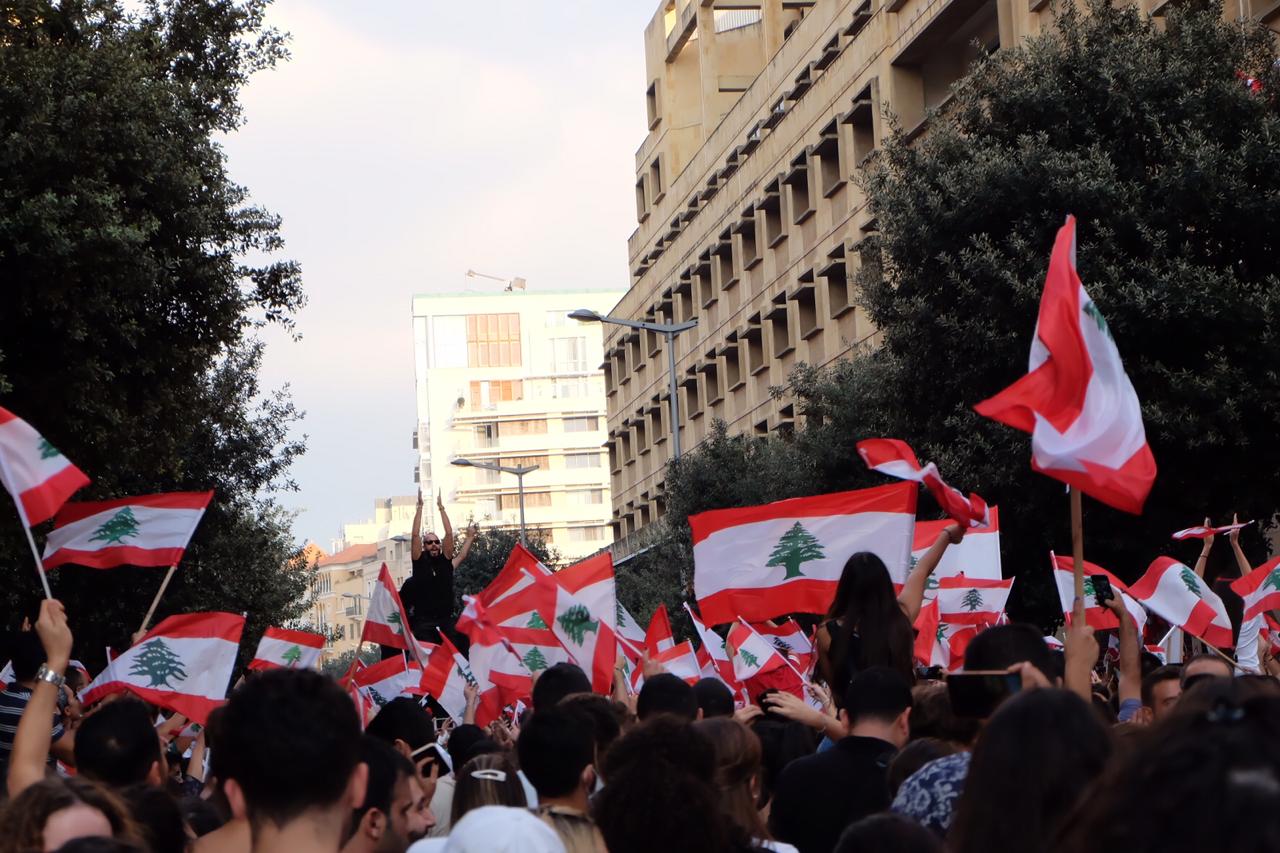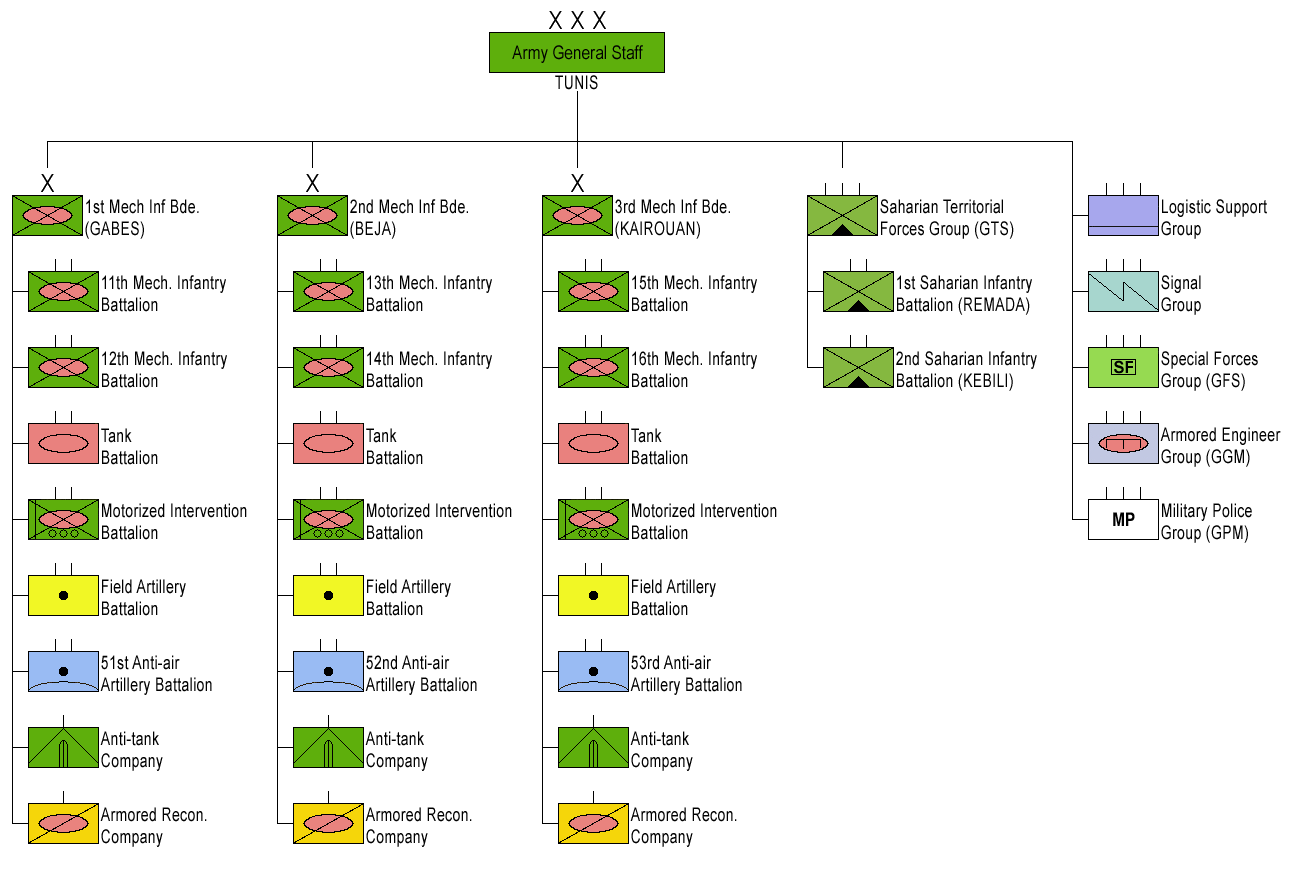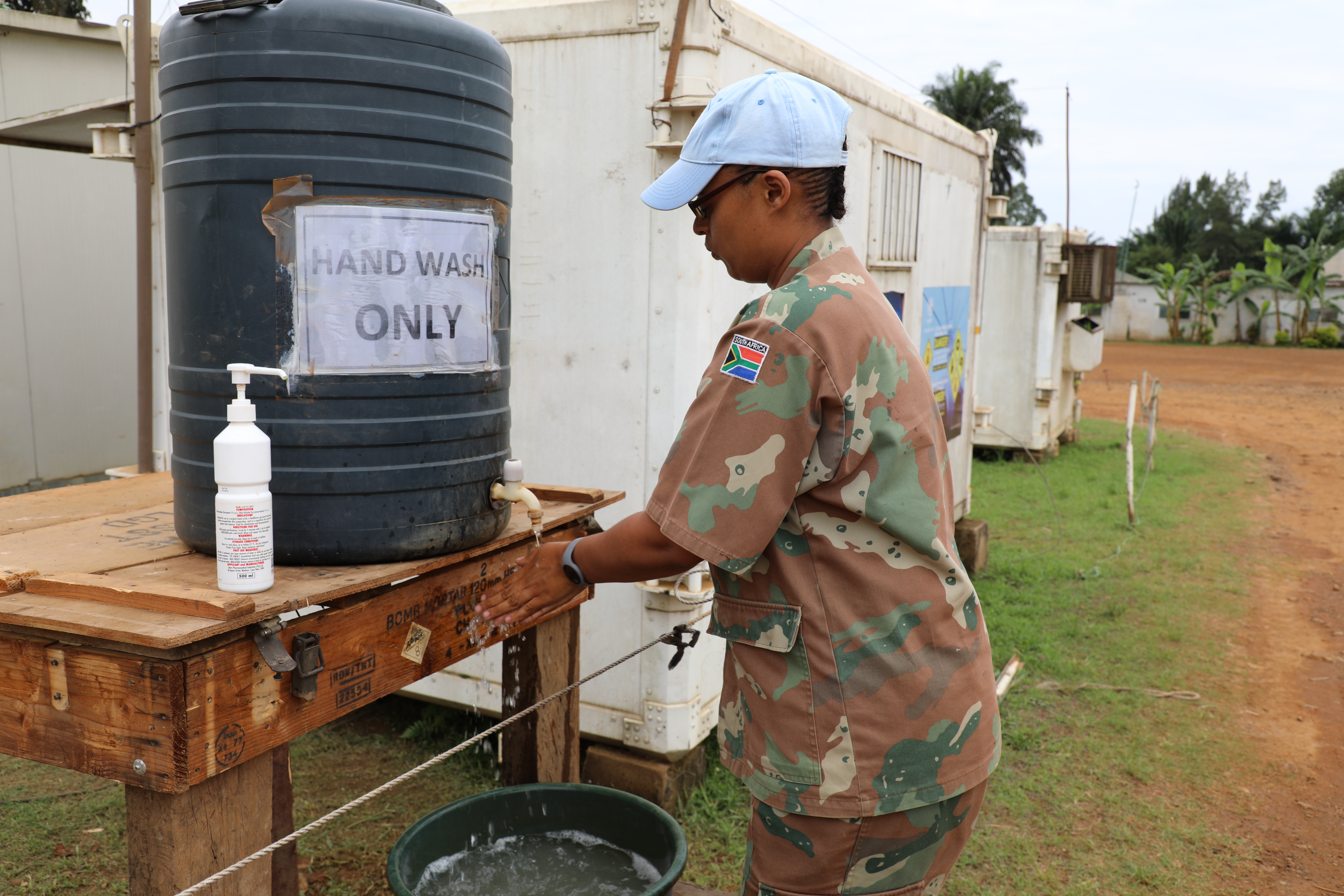|
2021 Tunisian Protests
The 2021 Tunisian protests are a series of protests that started on 15 January 2021. Thousand of people rioted in cities and towns across Tunisia, which saw looting and arson as well as mass deployment of police and army in several cities and the arrest of hundreds of demonstrators. The protests started in the town of Siliana, northwestern Tunisia, following the municipal police aggression of a shepherd. Young people clashed with police for the fifth straight night on 19 January. In response, Prime Minister Hichem Mechichi appealed to the protesters on national television, stating “Your voice is heard, and your anger is legitimate, and it is my role and the role of the government to work to realize your demands and to make the dream of Tunisia to become true.” On 21 January, Tunisia reported 103 COVID-19–related deaths, the highest figure to date in the country, among the highest rates in Africa. On 23 January, the government extended its health curfew and banned demon ... [...More Info...] [...Related Items...] OR: [Wikipedia] [Google] [Baidu] |
2018–2022 Arab Protests
The 2018–2022 Arab protests, known as Arab Spring 2.0 or Second Arab Spring, were a series of anti-government protests in several Arab countries, including Tunisia, Morocco, Jordan, Sudan, Algeria, Egypt, Iraq, Lebanon, Libya, Oman, and Syria. Economic protests also took place in the Gaza Strip. The deadliest incident of civil unrest in Iraq since the fall of Saddam Hussein resulted in its Prime Minister being replaced. Sustained civil disobedience in Sudan resulted in the overthrow of president Omar al-Bashir in a military coup d'état, the Khartoum massacre, and the transfer of power from a military junta to a combined military–civilian Sovereignty Council that is legally committed to a 39-month transition to democracy. The alternative names "Arab Spring 2.0", "Second Arab Spring", "New Arab Spring" and "Arab Summer" refer to similarity with the preceding Arab Spring wave of pro-democracy protests which took place in 2010–2013. Context and background Tesbih Habbal ... [...More Info...] [...Related Items...] OR: [Wikipedia] [Google] [Baidu] |
Tunisian Army
The Tunisian Land Army ( ar, جيش البر التونسي, Jaîsh el-Barr et'Tunsi, french: Armée de terre tunisienne) is the ground component of the Tunisian Armed Forces . The Land Forces Command is located in Bizerte. The TAF itself was created on June 30, 1956. The Land Army is the largest service branch within the Tunisian Armed Forces and has a dominant presence in the current General Staff. It is estimated to number around 90,000, in addition to 60,000 reservists for a total of 150,000 strong. The modern army was created in the 1830s. It has seen substantive combat on one occasion: against France during the 1961 Bizerte crisis. The mission of the Tunisian army is to defend the country against any foreign attack, to allow the development of a diplomatic counterattack and encourage the involvement of the United Nations, protect Tunisian nationals around the world and participate in peacekeeping missions. History During the Beylical period The modern Tunisian a ... [...More Info...] [...Related Items...] OR: [Wikipedia] [Google] [Baidu] |
Protests In Tunisia
A protest (also called a demonstration, remonstration or remonstrance) is a public expression of objection, disapproval or dissent towards an idea or action, typically a political one. Protests can be thought of as acts of cooperation in which numerous people cooperate by attending, and share the potential costs and risks of doing so. Protests can take many different forms, from individual statements to mass demonstrations. Protesters may organize a protest as a way of publicly making their opinions heard in an attempt to influence public opinion or government policy, or they may undertake direct action in an attempt to enact desired changes themselves. Where protests are part of a systematic and peaceful nonviolent campaign to achieve a particular objective, and involve the use of pressure as well as persuasion, they go beyond mere protest and may be better described as a type of protest called civil resistance or nonviolent resistance. Various forms of self-ex ... [...More Info...] [...Related Items...] OR: [Wikipedia] [Google] [Baidu] |
January 2021 Crimes In Africa
January is the first month of the year in the Julian and Gregorian calendars and is also the first of seven months to have a length of 31 days. The first day of the month is known as New Year's Day. It is, on average, the coldest month of the year within most of the Northern Hemisphere (where it is the second month of winter) and the warmest month of the year within most of the Southern Hemisphere (where it is the second month of summer). In the Southern hemisphere, January is the seasonal equivalent of July in the Northern hemisphere and vice versa. Ancient Roman observances during this month include Cervula and Juvenalia, celebrated January 1, as well as one of three Agonalia, celebrated January 9, and Carmentalia, celebrated January 11. These dates do not correspond to the modern Gregorian calendar. History January (in Latin, ''Ianuarius'') is named after Janus, the god of beginnings and transitions in Roman mythology. Traditionally, the original Roman calendar cons ... [...More Info...] [...Related Items...] OR: [Wikipedia] [Google] [Baidu] |
Looting In Africa
Looting is the act of stealing, or the taking of goods by force, typically in the midst of a military, political, or other social crisis, such as war, natural disasters (where law and civil enforcement are temporarily ineffective), or rioting. The proceeds of all these activities can be described as booty, loot, plunder, spoils, or pillage. During modern-day armed conflicts, looting is prohibited by international law, and constitutes a war crime.Rule 52. Pillage is prohibited. ''Customary IHL Database'', (ICRC)/ |
2021 Riots
1 (one, unit, unity) is a number representing a single or the only entity. 1 is also a numerical digit and represents a single unit of counting or measurement. For example, a line segment of ''unit length'' is a line segment of length 1. In conventions of sign where zero is considered neither positive nor negative, 1 is the first and smallest positive integer. It is also sometimes considered the first of the infinite sequence of natural numbers, followed by 2, although by other definitions 1 is the second natural number, following 0. The fundamental mathematical property of 1 is to be a multiplicative identity, meaning that any number multiplied by 1 equals the same number. Most if not all properties of 1 can be deduced from this. In advanced mathematics, a multiplicative identity is often denoted 1, even if it is not a number. 1 is by convention not considered a prime number; this was not universally accepted until the mid-20th century. Additionally, 1 is the ... [...More Info...] [...Related Items...] OR: [Wikipedia] [Google] [Baidu] |
June 2013 Egyptian Protests
The 30 June protests occurred in Egypt on 30 June 2013, marking the one-year anniversary of Mohamed Morsi's inauguration as president. The events ended with the 2013 Egyptian coup d'état after mass protests across Egypt demanding the immediate resignation of the president. The rallies were partly a response to Tamarod, an ostensibly grassroots movement that launched a petition in April 2013, calling for Morsi and his government to step down. Tamarod claimed to have collected more than 22 million signatures for their petition by June 30, although this figure was not verified by independent sources. A counter-campaign in support of Morsi's presidency, named Tagarod (meaning impartiality), claimed to have collected 26 million signatures by the same date, but this figure was also unverified and not mentioned in media nearly as much as Tamarod's, with no reliable sources repeating it. The movements in opposition to Morsi culminated in the June 30 protests that occurred across t ... [...More Info...] [...Related Items...] OR: [Wikipedia] [Google] [Baidu] |
2021 In North Africa
The following lists events that happened during 2021 in North Africa. Countries and territories Algeria *Chief of state and head of government: President: Abdelmadjid Tebboune (since 2019)CIA Factbook: Algeria CIA 2020, Retrieved 30 March 2020 Egypt *Chief of state: President of Egypt: (since 2014)CIA Factbook: Egyptretrieved 30 March 2020 *Head of government: Prime Minister of Egypt: |
COVID-19 Pandemic In Africa
The COVID-19 pandemicpandemic was confirmed to have spread to Africa on 14 February 2020, with the first confirmed case announced in Egypt. The first confirmed case in sub-Saharan Africa was announced in Nigeria at the end of February 2020. Within three months, the virus had spread throughout the continent, as Lesotho, the last African sovereign state to have remained free of the virus, reported a case on 13 May 2020. By 26 May, it appeared that most African countries were experiencing community transmission, although testing capacity was limited. Most of the identified imported cases arrived from Europe and the United States rather than from China where the virus originated. In early June 2021, Africa faced a third wave of COVID infections with cases rising in 14 countries. By 4 July the continent recorded more than 251,000 new Covid cases, a 20% increase from the prior week and a 12% increase from the January peak. More than sixteen African countries, including Malawi and ... [...More Info...] [...Related Items...] OR: [Wikipedia] [Google] [Baidu] |
COVID-19 Pandemic In Tunisia
The COVID-19 pandemic in Tunisia is part of the ongoing pandemic of coronavirus disease 2019 (COVID-19) caused by severe acute respiratory syndrome coronavirus 2 (SARS-CoV-2). The disease was confirmed to have reached Tunisia on 2 March 2020. Background On 12 January 2020, the World Health Organization (WHO) confirmed that a novel coronavirus was the cause of a respiratory illness in a cluster of people in Wuhan City, Hubei Province, China, which was reported to the WHO on 31 December 2019. The case fatality ratio for COVID-19 has been much lower than SARS of 2003, but the transmission has been significantly greater, with a significant total death toll. Model-based simulations for Tunisia indicate that the 95% confidence interval for the time-varying reproduction number ''R t'' was higher than 1.0 from July to October 2020. Timeline March 2020 * Tunisia confirmed its first case on 2 March 2020, a 40-year-old Tunisian man from Gafsa returning from Italy. * In additio ... [...More Info...] [...Related Items...] OR: [Wikipedia] [Google] [Baidu] |
Hichem Mechichi
Hichem Mechichi ( ar, هشام المشيشي; born January 1974) is a Tunisian politician who served as the Prime Minister of Tunisia, from 2020 to 2021, when he was dismissed by President Kais Saied. He held the post of Minister of the Interior in 2020 before being appointed head of government. Education Hichem Mechichi holds a master's degree in law from the faculty of law and political science from Tunis El Manar University, and a master's degree in law, political science and public administration from École nationale d'administration. He is also a former student of the long international cycle, of the Republic promotion (2005–2007) of the National School of Administration of France, the institution paying tribute to him via its website after his appointment as head of government. Career He was a member of the National Commission of Investigation on Corruption and Embezzlement, founded in 2011 and chaired by Abdelfattah Amor. In 2014, he was appointed Chief of Staff a ... [...More Info...] [...Related Items...] OR: [Wikipedia] [Google] [Baidu] |
North West Tunisia
North West Tunisia (Arabic language, Arabic : الشمال الغربي التونسي ) is one of the six geographic and economic regions of Tunisia, consisting of four Governorates of Tunisia, governorates: Béja Governorate, Béja, Kef Governorate, Kef, Siliana Governorate, Siliana and Jendouba Governorate, Jendouba. The region had a population of 1,170,752Census 2014 (National Institute of Statistics) representing 12.2% of the total population of Tunisia. This makes it the 5th-most populous region in the country, with only Djerid, South West Tunisia being smaller. Geography The North West region is located in the extreme north of the country, bounded to the west by the Tunisia Algeria relations, Tunisian-Algerian border and to the east by Grand Tunis and the North East Tunisia, North E ...[...More Info...] [...Related Items...] OR: [Wikipedia] [Google] [Baidu] |









